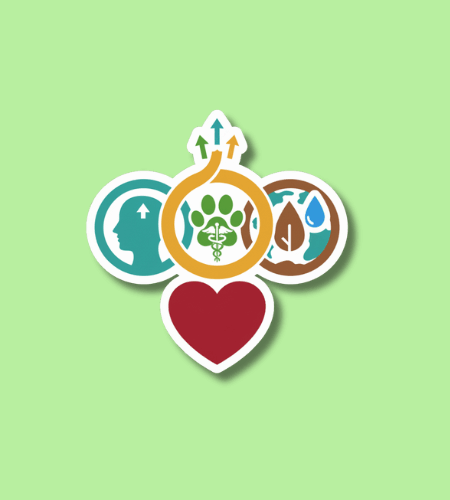One Health Day is observed every November 3 and celebrates the vital connection between human health, animal health, and the environment we share. It’s a global reminder that our well-being depends on how we treat the world around us—our ecosystems, the animals we live with, and the resources we rely on. On this day, health professionals, scientists, students, and communities come together to promote collaboration and raise awareness about the importance of protecting all forms of life as part of one integrated health system.
Table of Contents
History of One Health Day
The idea behind One Health grew from the understanding that diseases, food systems, and environmental conditions are deeply linked. When animals or ecosystems suffer, people often feel the effects too. Over time, professionals from medicine, veterinary science, and ecology began working together to address these shared challenges, leading to the creation of a coordinated global effort known as the One Health approach.
One Health Day was officially established to be celebrated every November 3 as a way to bring this vision to life. It was created through international collaboration between leading health and environmental organizations to encourage communities worldwide to take part. Since then, universities, government agencies, and research centers have hosted countless educational events, bringing attention to how intertwined our health truly is.
Why is One Health Day important?
One Health Day matters because many major global health issues—such as new infectious diseases, antimicrobial resistance, and climate-related illness—are influenced by the links between people, animals, and ecosystems. Recognizing this connection helps experts share information, coordinate responses, and prevent outbreaks before they begin.
The day also plays a key role in inspiring collaboration. It reminds us that no one sector can solve global health problems alone. By connecting ideas across medicine, environmental science, and agriculture, societies can build stronger, more sustainable health systems that protect everyone and everything.
Some simple reasons why One Health Day matters
- It reminds us that human and animal health depend on each other.
- It shows how environmental changes can affect disease and well-being.
- It encourages teamwork between doctors, veterinarians, and ecologists.
- It promotes prevention and preparedness instead of reaction.
- It inspires global awareness and community involvement.
How to Celebrate (or Observe) One Health Day
Observing One Health Day can be both educational and personal. Schools and organizations often hold workshops, seminars, or creative campaigns to teach how human, animal, and environmental health connect. Scientists may share new research, and students might create projects that explore One Health in their own communities.
On a personal level, it’s a day to think about how your choices influence the larger world—from how you care for pets and handle food to how you reduce waste and protect local wildlife. Every small action helps strengthen the web of health that binds us all.
Some ways you might mark the day
- Attend or organize a talk about how health connects across species.
- Share information online to spread awareness of the One Health idea.
- Support local projects that protect wildlife or clean up the environment.
- Learn about zoonotic diseases and how to prevent them.
- Make small eco-friendly changes in your daily routine.
One Health Day Dates Table
| Year | Date | Day |
|---|---|---|
| 2026 | November 3 | Tuesday |
| 2027 | November 3 | Wednesday |
| 2028 | November 3 | Friday |
| 2029 | November 3 | Saturday |
| 2030 | November 3 | Sunday |
Subscribe to our newsletter and never miss a holiday again!

